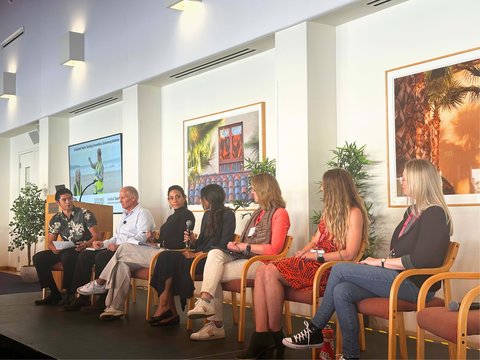
Representatives from across the Pacific region gathered on the Stanford campus earlier this month to champion the world’s largest and deepest ocean and the people who call its shores home.
Co-hosted by the Stanford Doerr School of Sustainability and Graduate School of Business as part of the Sustainability Research Conference series, the event drew scientists, government officials, foundation officers, and other practitioners engaged in work across the region, from Mexico to China and the Marshall Islands to British Columbia.
The Pacific region encompasses half of Earth’s oceans by area and one-third of our planet. A quarter of the world’s languages originated in the region, which contains more than 25,000 islands. But vast social and economic disparities exist, exacerbated by climate change, biodiversity loss, geopolitical tensions, and the commodification of marine resources like fisheries.
“To strengthen resilience in the Pacific, we must work together to balance environmental conservation with economic prosperity, equity, and human health,” said Fiorenza Micheli, co-director of the Stanford Center for Ocean Solutions and a professor of oceans in the Stanford Doerr School of Sustainability, as well as a co-organizer of the conference.
In opening remarks, ‘Aulani Wilhelm, MS ’14, executive director of the non-profit Nia Tero, noted that the concept of resilience is not new to many communities in the Pacific. “We just need to build upon what’s been there for millennia,” she said.
Wilhelm shared a story from the Malaita People of the Solomon Islands, who succeeded in protecting sacred, high-elevation forests known as “Sky Aelans” or Sky Islands by securing national recognition of their customary rights. The community went on to ban mining above 400 meters and employ local residents as full-time forest rangers, illustrating the need to expand Indigenous guardianship throughout the region’s ocean and coastal systems.
